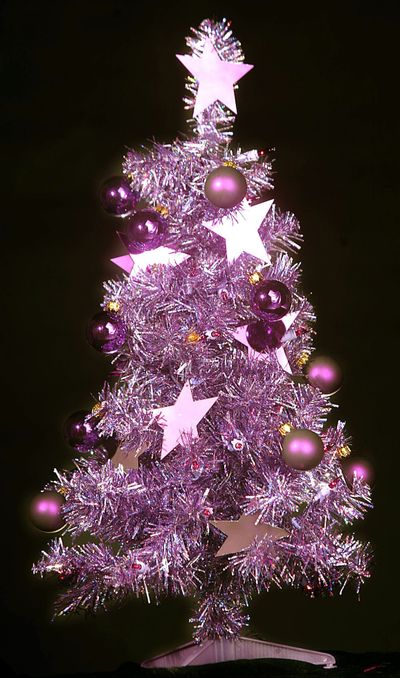Artificial versus real tree remains question for ages
Personal needs, preferences factors in this holiday choice

Millions of Americans make the decision each year to chose a real or artificial tree. Last year, Americans purchased 31.3 million real trees and 17.4 million artificial trees. The majority of Americans who purchase a real tree can recycle it when the holiday season is finished. People who purchase an artificial tree find it an attractive option, because after the holidays, they can store the nonbiodegradable tree in their garage, rather than throw it in the landfill.
Tracy Van Woerkom, a Post Falls homeowner said, “I have no clue what an artificial tree is made of. I figure it is made out of the same material of half a dozen things that you can buy at Michael’s for decorating your home. I have known someone with a real tree that caught fire and burned their house down. I like not having that fear. But, the biggest reason for having a fake tree is having a husband that is allergic to trees, so it makes a more enjoyable Christmas season not having a barking seal in the house.” Another benefit is that an artificial tree is a one-time expenditure.
Alex Ignatov, e-commerce manager for Tree Classics (treeclassics.com) commented on the benefits of purchasing an artificial tree: “They are safe for the environment, and actually prevent deforestation. Made of PVC and steel, and are 100 percent recyclable. We send all of our return product to a recycling agency in Zion, Ill. Like purchasing a new car, a customer often wants a new tree.”
Some individuals believe that artificial trees are flame retardant, and that it is a safe product to have in their home, but an artificial tree is not any safer in your home than a real one.
“Overloaded electrical outlets and faulty wires are the most common causes of holiday fires in residences – these are just as likely to affect artificial trees as real trees. In 2004, the Farmington Hills Fire Department in metropolitan Detroit conducted a test of how artificial and real trees react in a house fire. The artificial tree, which was advertised as ‘flame retardant,’ did resist the flames for a short time, but then was engulfed in flames and projected significant heat and toxic smoke, containing hydrogen chloride gas and dioxin.” – Source: christmastree.org
According to christmastree.org, 85 percent of artificial trees sold in the United States are manufactured in China. Why is this a problem? The reason is that most of these trees are made of polyvinyl chloride, or PVC.
An article posted on the Greenpeace Web site titled, “How to Find and Avoid Toxic Vinyl (PVC) in Your Home” states that “because of its majority chlorine content, when PVC burns in fires two extremely hazardous substances, hydrogen chloride gas and dioxin are formed which present both acute and chronic health hazards to building occupants, firefighters and surrounding communities. In addition, when PVC burns, some 100 different toxic compounds are produced.”
Artificial trees can be recycled and so can real trees. After a real tree is ground up, the remaining wood chips are referred to as hog fuel. Then, it can be sold as mulch, bark or used to produce energy.
“I used to have an artificial tree, but I missed the fresh pine smell of a real one and it was a pain to color code,” said Tammy Schilling, a resident of Coeur d’ Alene. “So, we donated it to Goodwill. I know that I like many other people have unlimited storage space, so of course let’s add an artificial tree to the garage. A real Christmas tree gives the cats a sleeping spot underneath the tree with their own special drinking bowl. It’s always been a tradition to select a Christmas tree with our children. Some years we’ve gone to the lots, and other years we’ve gone traipsing through the woods for a Charlie Brown tree.”
Local recyclers will accept tree drop-offs, minus the decorations. This service is free, or may involve a small fee. To search for a recycler online, type in your city and the word recycler for locations and dates. Or, look up recycling centers in your phone book.